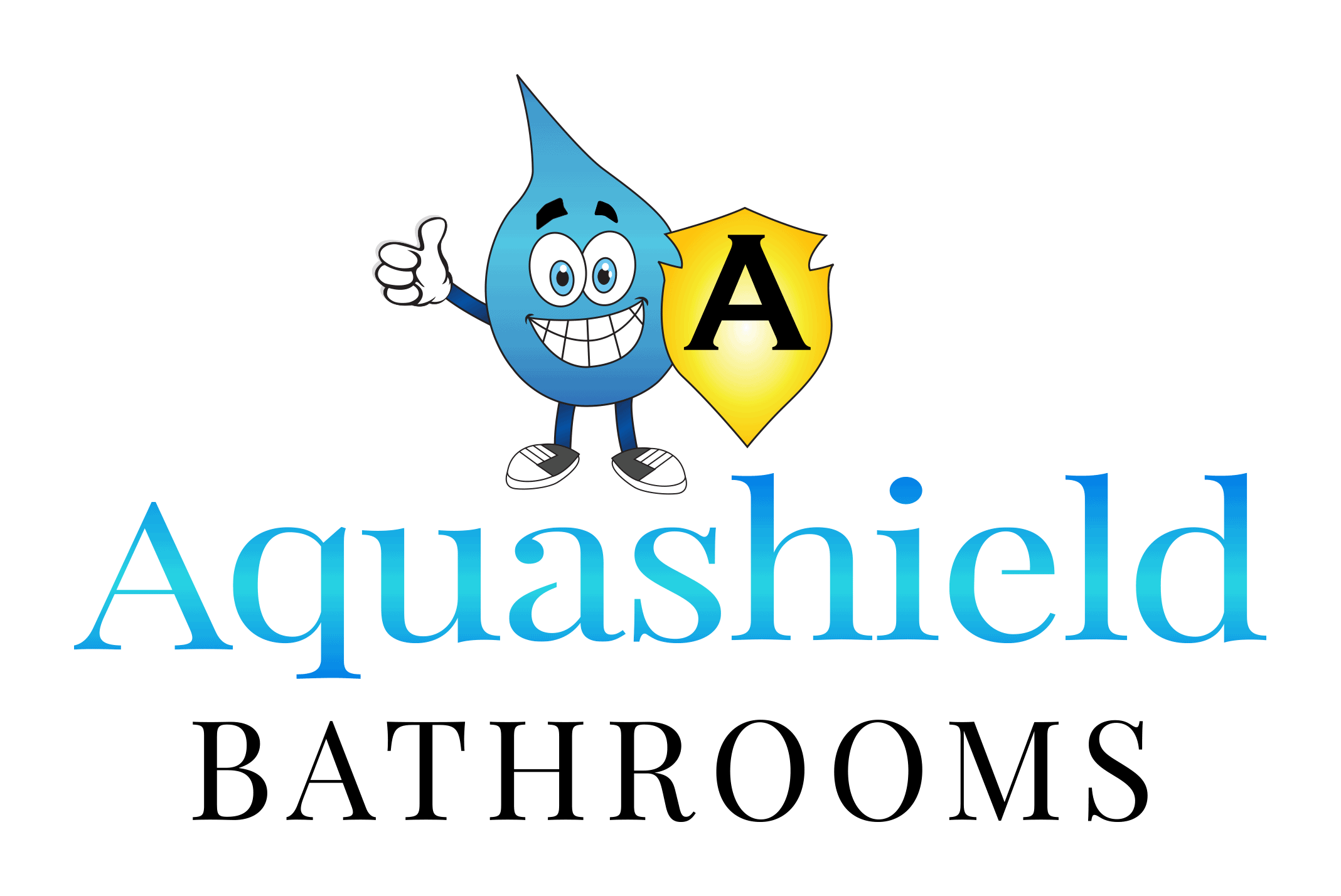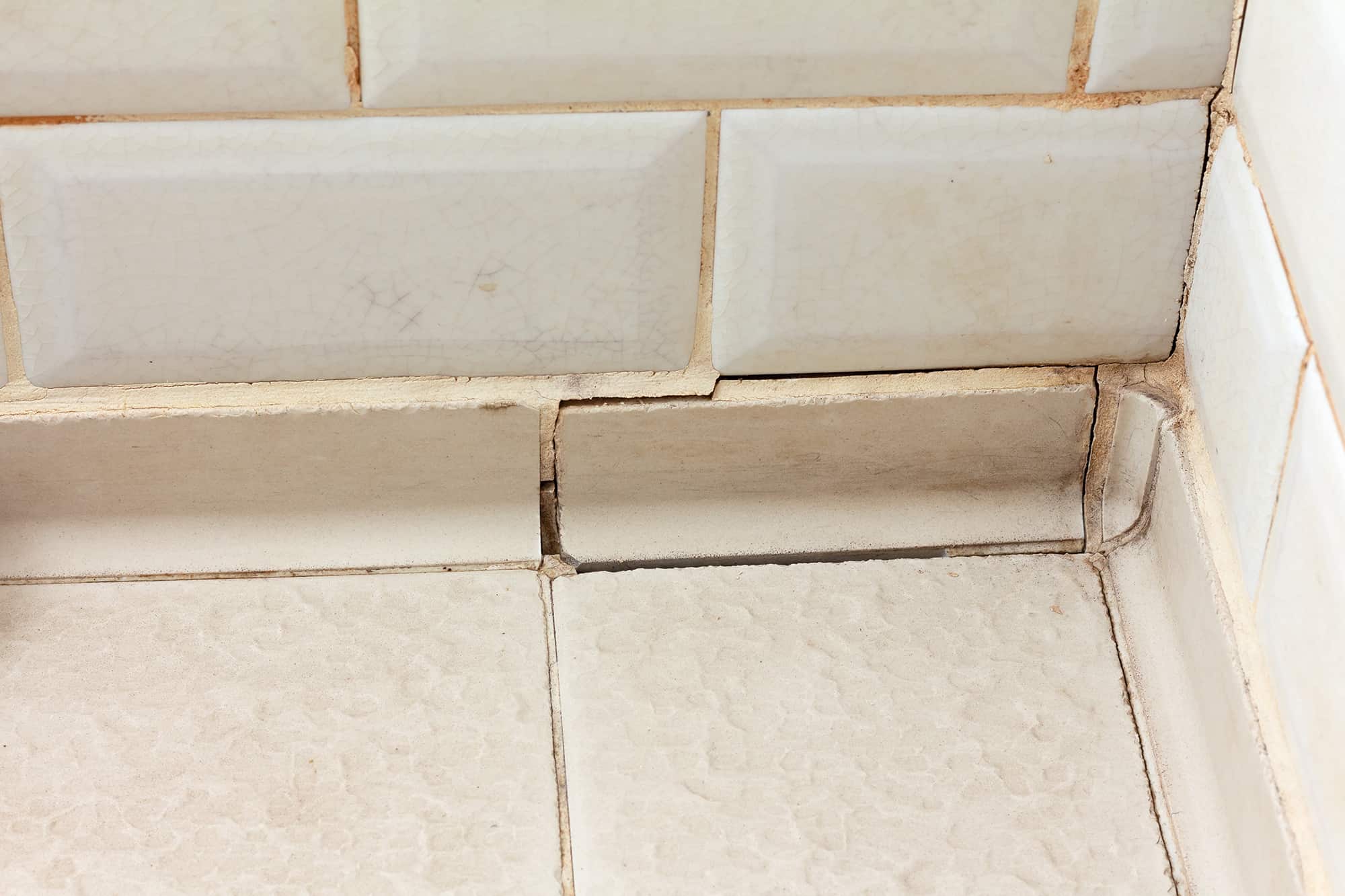Why Repairing Cracked Shower Tiles Is So Important: Tips to keep your shower in great condition
A cracked shower tile is not only unsightly, it can very often indicate that there is a more serious problem that is evolving below the surface of your tiles and should be considered as an early warning indicator. If a cracked tile suddenly appears in your shower the time to act is now as it will only get worse and compounding moisture related issues can have scary (and expensive) consequences. A proactive approach coupled with a bit of TLC, the right materials and the right expertise will mean professional repair is possible and will avoid shelling out a lot of money.
What causes a shower tile to crack?
Tiles generally don’t just crack on their own – there is always a reason. There are generally three reasons why tiles will crack.
Lack of correct amount of tile adhesive for support
There are building codes that govern the appropriate amount of tile adhesive that should be applied to the tiles prior to laying and generally the minimum is 80% of the tile using a notched trowel. Understandably the bigger the tile, the bigger the notch trowel and the more adhesive is used.
Tile adhesive is the support for the tile. Using floors as an example, not enough glue means not enough support and the tile can have ‘hollow’ or ‘drummy’ sounds from it when a tap test is performed. Not enough support will equate to movement sooner than what it should and having missing areas of tile adhesive also encourages condensation to build up in the missing pockets of glue below the tile.
Additionally this can also affect the surrounding grout lines of the tile causing them to fracture, split or completely fall inward which also then allows more water to flow below the tile with every shower causing your shower to leak heavily below the tiles.
Moisture ingress
80 percent of people do not realise that their shower is leaking. We are not talking about the visible signs of waterproofing membrane failures. There are two kinds of leaks within a shower: the ones you can see, and the ones you cannot.
The ones you cannot see always end up being the ones that you can and by that time – it is too late and this is why a proactive approach to shower maintenance is just so important.
When water enters below the tiles of a shower it is never just the water on its own. All of the chemicals used in a shower (such as your soaps and conditioners, cleaners and the like) naturally follow the water down. As time goes on these chemicals turn corrosive together and will begin to eat away at tile adhesive, concrete bedding and waterproofing to eventually cause that catastrophic or ‘end of life’ failure.
If you have ever seen shower screen glass that is calcified with hard water stains that one simply cannot clean – this is because the stains have now permanently etched themselves into the actual surface. This corrosive process happens underneath your tiles, too.
Moisture has two reactions – things either shrink or swell. Either way both are movement, both are bad for your shower and while tiles will try to cope with this eventually they won’t be able to – so they crack to tell you they are in trouble.
Blunt force trauma
Lets face it – we aren’t talking about putting a hammer to a tile here. But tiles are designed to take a small amount of blunt force such as accidently dropping a shampoo bottle or the like, or accidentally missing your shower rose bracket while you try to hang up your shower hose after using it. However – if a tile is not supported by the proper amount of tile adhesive and you hit it in just the right spot – then it will crack.
Repairing cracked shower tiles
Repairing tiles should always be done by a professional and, the area should be assessed prior to the repair to investigate not just what kind of tile is cracked and where the tile is cracked (for example – does a shower screen need to be removed first as the crack runs behind it?) but what the existing condition of the surrounding area is like.
More often than not there are obvious signs and issues that also need attention and repair that have contributed to this particular symptom – your cracked shower tile. This means that repairing the shower tile alone is often not going to cut it and if proper investigation is not done then the problem will simply re-appear and/or worsen in due course resulting in a callback.
When a shower tile is repaired properly the area is not just chemically cleaned it is also mechanically cleaned of any dust, contaminates and bacteria (it is a shower after all!) and moisture to achieve a good, clean and long lasting seal.
Conclusion.
If you are wondering how to prevent cracked shower tiles then there are signs that you can watch for as ultimately – everything in your shower has an expiration date of some kind and it will succumb to age and use.
How long a shower lasts overall is completely dependent on how well it is built in the first place so the first step is to start with a reputable builder who builds your bathroom and shower properly, and provides all of the correct knowledge and guidance during the process coupled with the appropriate licences, contracts, certificates and warranties.
Having said that and as mentioned – as time goes on your shower will begin to show signs of wear and tear (after all – showers get used every day!) and are just like everything else inside your home. So make sure that you have no holes or gaps within any wall or floor grout or sealants such as silicone that could allow water below the surface of your tiles every time you have a shower.
Think about it – every ten minutes allows on average 50L-60L to circulate through your shower recess. Even a small hole in grout or silicone will allow water through and if you consider on average two showers a day, 365 days of a year and multiply that by how old your shower is – you are guaranteed to have a recipe for deterioration that requires that TLC.
Further – mould is known to reoccur in a shower BUT if it gets to a point where it simply does not disappear after cleaning or it comes back way too quickly then there is a good chance that water is leaking below the surface due to expired and/or poorly applied products and mould is now making a nice little nest for itself there.
If you are ever unsure why not give us a call for a Free Leak Check? Our assessments generally go for around 45 minutes, doesn’t cost you anything but will leave with either a professional, cost effective and proactive solution or peace of mind allowing you to relax, stress free. Feel free to call our friendly girls in the office on 3466 4982 to organise yours today!
Call us for a Free Leak Check. Now servicing Sunshine Coast and surrounding areas.

